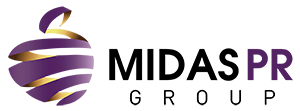In our previous edition of the Muse, we outlined what ethics in the PR industry means and how working ethically can benefit practitioners’ and clients’ reputations.
On the other hand, unethical and ill-advised communication approaches can ruin both reputations and relationships. Often, these practices are implemented through lazy strategy or ‘shortcut’ tactics, but they have huge potential to backfire.
Spreading disinformation for a positive image
A publication in late 2021 attracted the media and public scrutiny of the PR industry when its authors discussed the influence exerted by several PR companies on behalf of their clients around the topic of climate change politics via greenwashing.
Greenwashing is considered an incredibly unethical practice because it involves deceptive and manipulative tactics to make something seem less environmentally detrimental than it is, often to garner stakeholder favour through duplicitous means.
Defaming one’s competitors
Regardless of your industry, competition is an inevitable part of business. However, PR practitioners should not attempt to gain a competitive advantage by using fake accounts to give bad reviews online or paying influencers to boost bad coverage circulation of their competitors.
Doing so not only goes against the codes of conduct imposed by official PR associations but also shrinks your collaboration prospects with other PR fellows, thus negatively affecting your reputation in the industry. On top of this, some countries are cracking down, making fake posting reviews (either positive or negative) illegal.
Adopting immoral media relations tactics
Spinning bad news in response to media inquiries, pitching items that are not newsworthy and bribing editors to issue your publicity materials are ethical breaches. They harm the symbiotic relationship between PR pros and journalists. At best, you’ll be ignored; at worst, you’ll earn a place in the media’s email blacklist, and they may even call you out on social media!
Cited on the Institute for PR website, a study by IABC found that 70% of communication pros might not be ready to deal with ethical dilemmas unless they have prior related experience.
In markets like Thailand, where training and curriculum dedicated to PR ethics are limited, young practitioners are often put at a disadvantage, relying on the experience of senior or overseas practitioners.
Since ethical PR is the foundation for garnering stakeholders’ trust, working with transparent and ethical communication agencies is vital for businesses to succeed.
At Midas PR, we strongly believe in transparency and strive to act as a consultant on ethical communications between our clients and their stakeholders.
If you want a publicity campaign that closely complies with moral and professional standards which will earn the trust of your stakeholders and media, contact us for a consultation by email or www.midas-pr.com.


